Masafer Yatta is a community of small Palestinian villages at the south-eastern edge of the Occupied Territories. While it appears on Apple Maps (as Musafer Yatta), it’s absent from Google Maps, and only by typing in the names of some of the hamlets do they appear. This shouldn’t be surprising given that Israel has long considered these villages, and their populations, to be erasable.
Shooting on No Other Land began in 2019, when evictions were picking up speed, and it ends presciently in October 2023, shortly after Hamas atrocities were followed by Israel’s murderous juggernaut. The importance of this documentary, made by two Palestinian and two Israeli activists, is in its documentation of the Zionist plan to eliminate the Palestinian presence long before October 7th. This comes as no surprise of course, but for Basel Adra, Rachel Szor, Hamdan Ballal and Yuval Abraham, the only way to combat their sense of total helplessness is by recording the ongoing appropriation of land and brutal treatment of its inhabitants.
The filming can be rough – Israeli soldiers don’t care for cameras even when those holding them declare that they’re journalists – but the editing dexterously finds a balance, no easy feat given the uncertainty of where this was going as well as the speed with which it had to have been put together in order to make the Berlinale premiere. At the center of it all is Basel Adra, a law student turned activist who can only find employment in construction on the other side of the Israeli wall. Basel is co-director/writer/editor, occasional narrator, and the weary, clear-eyed witness to army and settler incursions (often hand-in-hand). No matter the families here have title deeds to the land, which they’ve litigated for decades; long before Benjamin Netanyahu became Prime Minister, the government has been trying to push the owners out, claiming the army needs the area for military exercises.
In the summer of 2019, as some families are evicted and forced to live in caves, Basel meets Yuval Abraham, an Arabic-speaking inexperienced Israeli journalist looking to document what his country is doing. In contrast to Basel, Yuval is naïve and impatient, with a bit of a savior complex: he’s come to help the Palestinians get justice. At the start, he’s the well-meaning ally who doesn’t really understand the cavernous divide between someone who can dip in and out, returning to their comfortable homes on the other side of the Wall, and those who are trapped inside and fighting to hold on to what’s theirs. Impressively, Yuval sticks it out (he’s co-director/writer/editor), less weary than Basel who’s living the Occupation daily, but with time he becomes more realistic about the situation.
Together they document the Israeli Army’s encroaching land expropriation, such as the military’s destruction of a generator, with tragic consequences when Harun Abu Aram is shot and paralyzed from the neck down. In 2020, the villagers are told they can no longer drive in the region, then in 2021 the chicken houses are destroyed (with the animals inside), and in 2022 the school is bulldozed. None of this should have been unanticipated: early on, Basel expresses the hope that documenting these violations of international law will push the U.S. to pressure Israel and ease the Occupation, but of course the U.S. has always been fully aware of what’s happening, occasionally rapping a few knuckles while continuing to supply Israel with weapons. Towards the film’s end, when the army trashes the irrigation pipes (thus helping the ever-growing Settlements water their lawns), any illusions have long been replaced by the onslaught of reality.
The coda brings things to October 2023, when settlers feel no restraint in attacking West Bank Palestinians following Israel’s ongoing attempt to wipe out the entire population of Gaza. There is no happy ending here, no comforting ray of hope in a dark time. Only the urgent voices of people driven from their homes or killed, and the exhausted chroniclers who know they can’t give up.
Directors, screenwriters: Basel Adra, Rachel Szor, Hamdan Ballal, Yuval Abraham
With: Basel Adra, Yuval Abraham, Nasser Adra, Harun Abu Aram
Producers: Fabien Greenberg, Bård Kjøge Rønning, Basel Adra, Yuval Abraham, Rachel Szor, Hamdan Ballal
Cinematography: Rachel Szor
Editing: Basel Adra, Rachel Szor, Hamdan Ballal, Yuval Abraham
Music: Julius Pollux Rothlaender
Sound: Bård Harazi Farbu
Production companies: Yabayay Media (Palestine), Antipode Films (Norway)
Venue: Berlin Film Festival (Panorama Documentary)
In Arabic, Hebrew, English
95 minutes

.png)
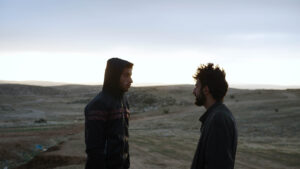

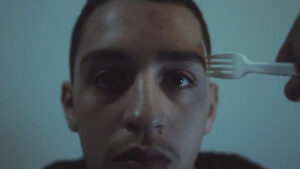
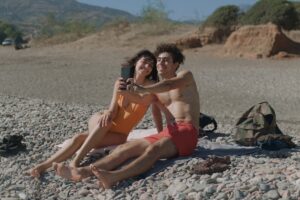
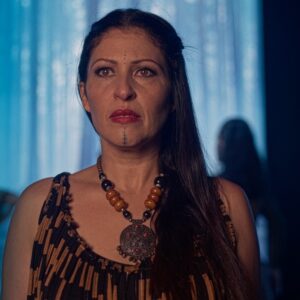
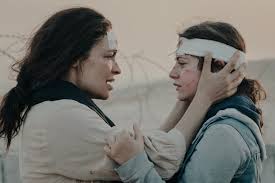
I like this web site it’s a master piece! Glad I found this ohttps://69v.topn google.Raise blog range